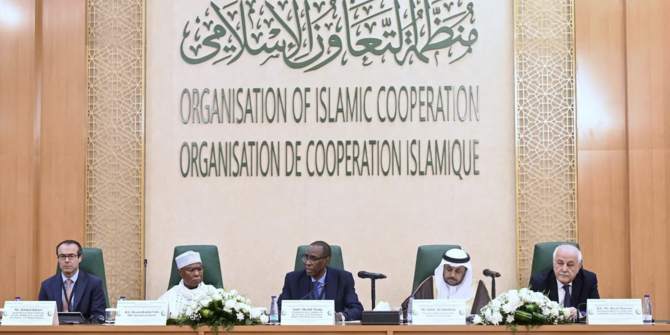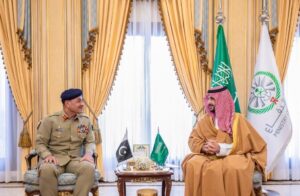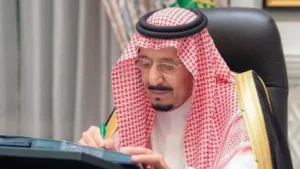OIC Holds Symposium on Jerusalem and Gaza War in Jeddah

Jeddah, The Gulf Observer: The Organization of Islamic Cooperation (OIC) hosted an international symposium on Jerusalem and the Gaza war at its headquarters in Jeddah on Monday. The event, organized in collaboration with the Committee on the Exercise of the Inalienable Rights of the Palestinian People, was titled “Jerusalem and the Gaza War: Palestinian Identity and Existence Under Threat of Erasure.”
OIC Secretary-General Hissein Brahim Taha opened the symposium by emphasizing the perilous conditions in the occupied city of Jerusalem due to repeated Israeli attacks on Islamic and Christian holy sites, residents, and the Arab identity through settlement policies, land confiscation, house demolitions, the construction of the Apartheid Wall, and assaults on worshipers. He reiterated that Jerusalem is the capital of Palestine and an integral part of Palestinian territory occupied in 1967, and denounced Israeli policies and actions as illegal, illegitimate, and a violation of international law and UN resolutions.
Taha warned that Israeli actions risk expanding the conflict into a dangerous religious dimension that threatens global security and stability, necessitating responsible international intervention. He condemned the ongoing Israeli military aggression against the Gaza Strip, which has resulted in nearly 38,000 deaths, the destruction of hundreds of thousands of buildings and civilian infrastructure, and the displacement of over a million Palestinians.
Expressing disappointment at the UN Security Council’s failure to compel Israel to implement its resolutions for an immediate ceasefire and withdrawal, Taha called for the international community to uphold its legal, political, and moral responsibilities to end the Israeli genocide in Gaza and prevent further violence and instability in the region.
Riyad Mansour, the Permanent Observer of Palestine to the UN, highlighted Saudi Arabia’s significant role in supporting Palestinian national rights during the Gaza conflict. He noted the unified Arab and Islamic stance on three critical goals: halting the aggression, ensuring adequate humanitarian aid reaches Gaza, and stopping war crimes and crimes against humanity, including the forced displacement of Palestinians.
Mansour also commended the efforts of the Ministerial Committee led by Saudi Foreign Minister Prince Faisal bin Farhan, which has been engaging with the five permanent members of the UN Security Council and other countries to stop Israeli aggression and gain further recognition for Palestine.


